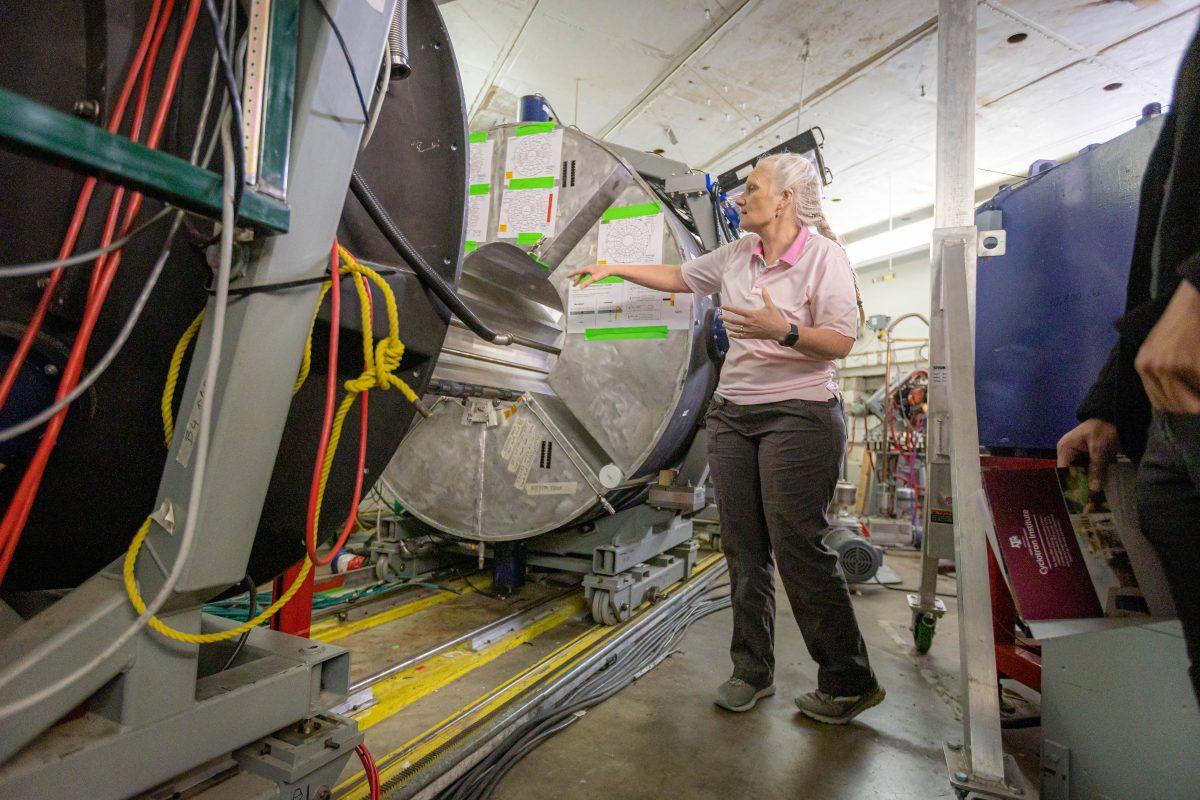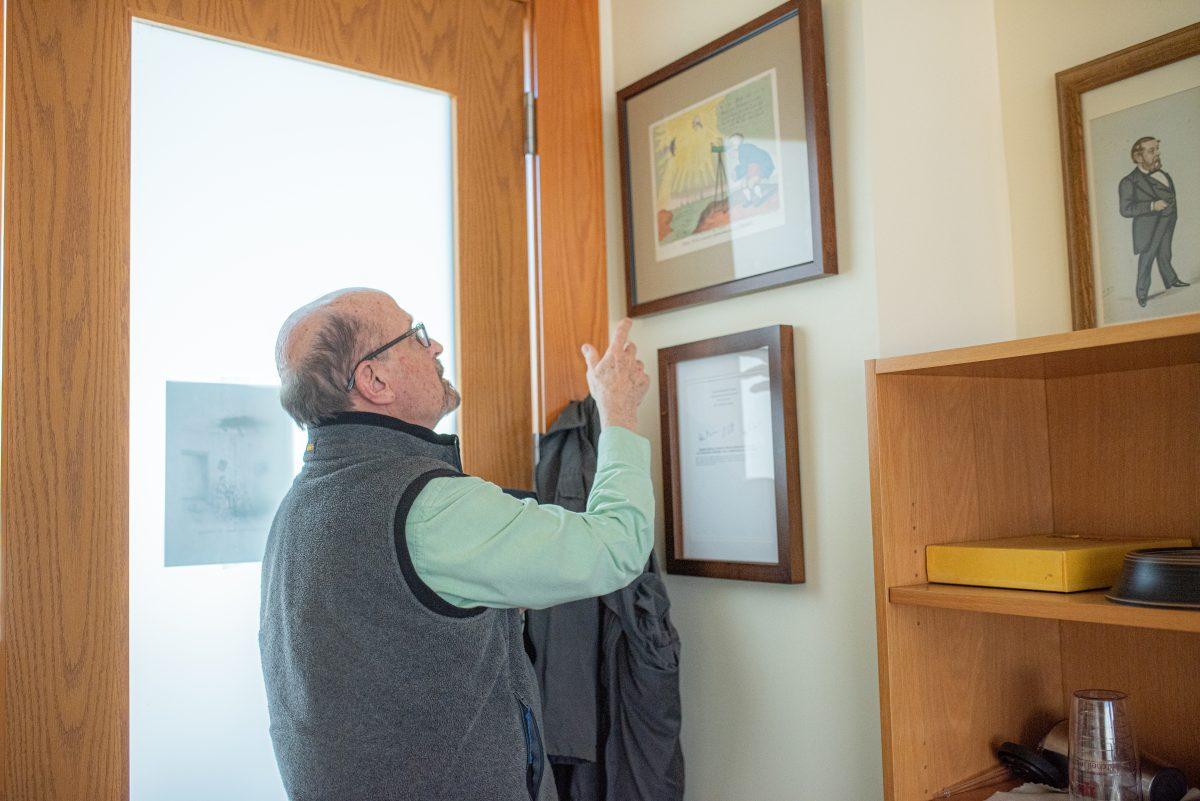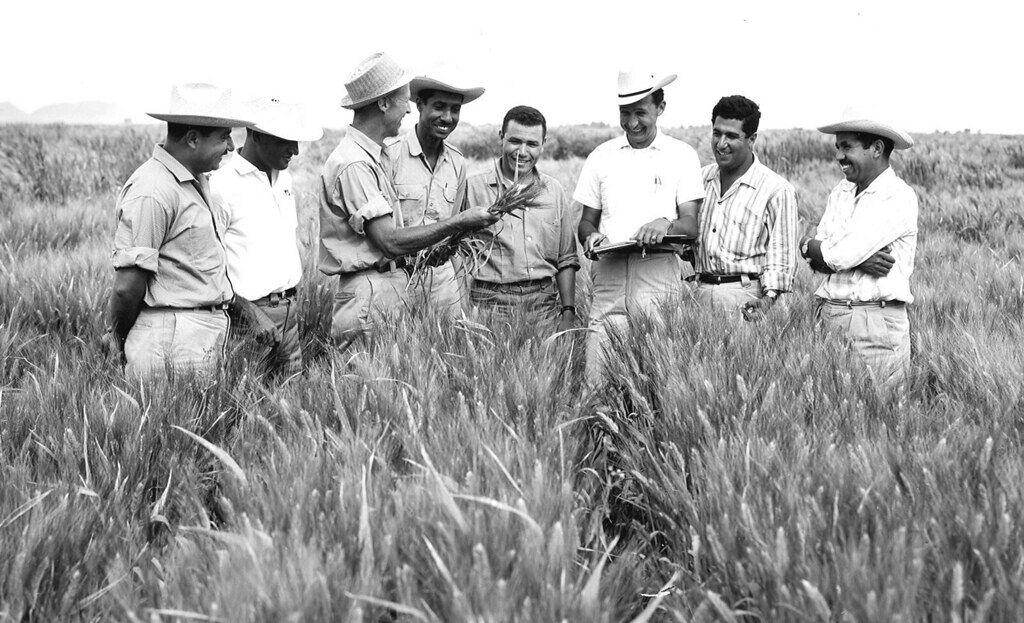The Battalion news reporter Austin Williams sits down with Katherine Banks, vice chancellor for engineering for the Texas A&M University System and dean of the Dwight Look College of Engineering, to discuss the lack of women in science, technology, engineering and mathematics careers and about her own path to getting involved in a STEM career.
THE BATTALION: Why do you think there is a lack of women in STEM majors?
Banks: For women, our retention is about the same for women in engineering as it is for men. We don’t lose them if we get these women here. The problem is getting them here and encouraging women to apply to this profession, our program. The discussion really about women is the idea that we need to change the conversation about engineering. We need to talk differently about engineering to young girls. The data shows if a young woman does not have a positive impression of engineering by 3rd grade, then she is less likely to go into engineering. So that indicates to us that we need to develop programs in Pre-K through 5th grade that will encourage more women to move into our field. Young girls also tend to want to think about how they can make a difference to society or the world for that matter. I have a friend who says that, ‘If you want to help one person at a time, become a doctor. If you want to help thousands of people at one time, become an engineer.’
THE BATTALION: What are some ways you hope to increase the diversity within STEM majors at A&M?
Banks: There have been some studies that have shown that women from families that contain an engineer are more likely to go into engineering. So there is at least some indication that if you have an engineer in your family, you’re more likely to move into engineering. That would suggest if we educate families about engineering, then we will be more likely to find women interested in our field. We have a new person coming on board in January to help focus on women, particularly recruiting women, and we have a new retention program. We are developing programs right and left to help all students, and again I think our recruiting efforts will result in a higher number of women in the future. We have a goal of 36 percent, we’re going to hit that, in 10 years we’re going to hit that. We have to make sure we recruit the best students, but also retain them.
THE BATTALION: What was your experience like in college when pursuing this field?
Banks: It was good. I had a great time in college. Obviously I was a minority in my classes, and at times in my career, I think I felt that I had to prove myself to certain individuals. I had to work really hard and make sure that my product is very high quality, but everyone should feel that way. Perhaps expectations might have been different for me than others at some point, but on the other hand, it just gave me the incentive to work harder and to make sure that I produced high-quality work and I tend to do so. I assume that’s why I was successful. But I think expectations maybe were a little different. On the other hand I didn’t mind, I had two brothers and don’t have sisters. I work well with men. I had no problem working with engineers of any gender, and I tended to be more of a tomboy as a child, so I had no problems hanging out with the guys.
THE BATTALION: What made you want to pursue a STEM education?
Banks: I enjoy science. Science drew me to STEM and I learned a great deal about science when I was in college. Started out with a major in science and then learned more about engineering. I had never met an engineer as a child, so really didn’t know anything about the profession. I had a friend who was in engineering, and I asked her many questions about the program. I knew I liked mathematics, and I took a physics class — really enjoyed that and determined that engineering was my path rather than science. It was the right choice and I love it.
THE BATTALION: Did you experience any adverse environments that made your education more difficult?
Banks: I don’t know if the expectations necessarily were higher for me or if I actually insisted on higher performance for myself. For example, perhaps I expected myself to achieve more than my male counterparts did for their own field. I expected that I would do well in my classes, very well, and when I didn’t I was disappointed in myself. Now, whether the professors were disappointed in my performance I have no idea, but I know I was. So whether it was some internal, external high expectation or something that was put forth by professors or colleagues in classes, I don’t know. There were those who expected I would fail. I did have one instructor that told me flat out that women shouldn’t be engineers, but you just shrug it off and say ‘Well that’s your opinion,’ and you just move forward doing what you want to do — at least I did. I think for individuals who challenge you in that way, who question whether you should be in the room, you just step back, fight a bit and say, ‘Well I’ll prove to you I can, I can do this work and I certainly should be here.’ There’s a huge sense of satisfaction when you prove that individual wrong.
Q&A: Dean talks women in STEM
November 24, 2014
0
Donate to The Battalion
Your donation will support the student journalists of Texas A&M University - College Station. Your contribution will allow us to purchase equipment and cover our annual website hosting costs.
More to Discover







